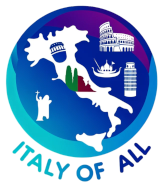The province of Rovigo, located in the Veneto region of northeastern Italy, is distinct for its tranquil landscapes, historical richness, and cultural heritage. Nestled between the Po and Adige rivers, Rovigo is predominantly characterized by its expansive and fertile plains, which are part of the larger Po Valley, one of the most significant agricultural areas in Italy.
Geographically, the province’s landscape is largely flat, dominated by agricultural fields that stretch far and wide, interspersed with small towns and villages. This area is also marked by the presence of numerous waterways, including parts of the Po Delta, a UNESCO World Heritage site known for its unique wetlands and diverse ecosystems.
Historically, Rovigo has a layered history influenced by various regional powers, including the Venetians and the Este family of Ferrara. The region’s strategic location made it a contested territory for centuries. Notable historical sites include the medieval towers of Rovigo’s old city center, such as the Torre Donà, one of the tallest medieval towers in Italy, and the ruins of the Este Castle, which underscore the area’s medieval significance.
Culturally, Rovigo maintains a rich tradition of local festivals and events that reflect its historical and agricultural heritage. The Palio of Rovigo, for example, is an annual event that revives ancient competitions between the city’s districts. The province also has a strong tradition in the arts, particularly in music, with the Conservatorio Francesco Venezze attracting students from across the region, and hosting numerous musical performances throughout the year.
Cuisine in Rovigo is typical of the Po Valley and features a diet based on rice, maize, and wheat products. Local dishes often include “risotto” in various forms, influenced by the proximity to the rice-growing areas around the Po river. Seafood is also prominent, particularly recipes featuring eel and other fish from the nearby delta regions. The area is known for “anguilla alla bisentina,” a traditional eel dish that reflects the local fishing practices.
Economically, Rovigo’s economy is predominantly agricultural, with significant emphasis on cereal production, viticulture, and fruit growing, including famous varieties like the Delta del Po’s IGP (Protected Geographical Indication) artichokes. Industrial activities are focused on food processing and manufacturing that are related to agricultural outputs. The area also benefits from ecotourism, particularly in the Po Delta Park, where visitors can explore unique landscapes and biodiversity.
Despite facing challenges such as the need to adapt to changing agricultural practices and environmental sustainability, Rovigo is actively working towards leveraging its natural and cultural assets to promote sustainable development. This includes efforts to enhance its agricultural products, develop ecotourism, and preserve the cultural heritage that defines the province.
Overall, the province of Rovigo offers a blend of tranquil natural beauty, historical intrigue, and a thriving cultural scene. Its commitment to preserving its unique landscape and heritage while fostering sustainable economic growth ensures its continued importance within the Veneto region and Italy.
Comuni in Rovigo Province:
- Bergantino
- Boschi Sant’Anna
- Bosaro
- Arquà Polesine
- Ariano nel Polesine
- Badia Polesine
- Adria
- Bagnolo di Po
- Canda
- Calto
- Canaro
- Castelmassa
- Crespino
- Ceregnano
- Costa di Rovigo
- Fiesso Umbertiano
- Ficarolo
- Fratta Polesine
- Lendinara
- Gavello
- Gaiba
- Giacciano con Baruchella
- Frassinelle Polesine
- Guarda Veneta
- Occhiobello
- Papozze
- San Bellino
- Rovigo
- Porto Viro
- Salara
- Porto Tolle
- Pettorazza Grimani
- Pincara
- Pontecchio Polesine
- Rosolina
- ** Polesella
- San Martino di Venezze
- Stienta
- Villamarzana
- Taglio di Po
- Villanova del Ghebbo
- Trecenta
- Villanova Marchesana
- Villadose
